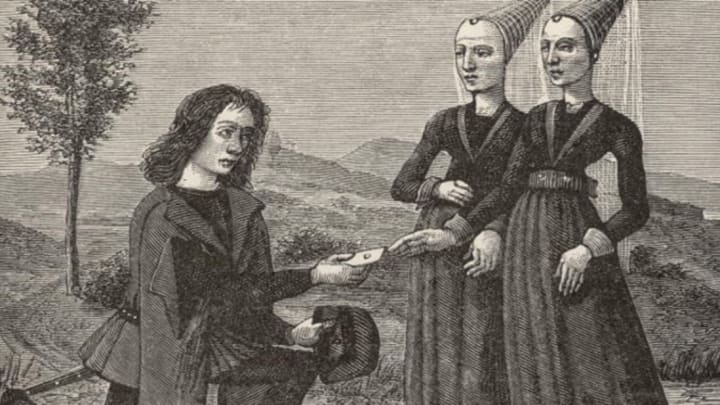For centuries, O was used in English literature to deliver longing, rapture, and melancholy in the package of a single letter. It appears in the writings of William Blake, T.S. Eliot, and even in the King James Bible. But today you’d be hard-pressed to find anyone using the word outside a Shakespeare festival. So what caused the death of literature’s favorite exclamation?
According to Douglas Kneale, a scholar of Romantic poetry and administrator at the University of Windsor, William Wordsworth and poets like him may have set O's decline into motion. The romantic poet was known for trying to “democratize” language and move it away from the lofty, stylized verse that was standard in poetry at the time. “He tried to find a language really spoken by men,” Kneale told The Paris Review. O, which was used to invoke people, things, or ideas that weren't present, was exactly the type of language Wordsworth was trying to avoid.
Even as O became less popular, major poets like E.E. Cummings were still using the word in earnest during the modernist period. It was around this time that writers were starting to tack that sneaky h onto the end of oh and use the two words interchangeably.
As we moved deeper into the 20th century, language evolved until the classical O eventually became associated with ironic usage and old-timey writers in knickers and powdered wigs. Today the modernized oh reigns in its place. The Oxford English defines O, an archaic spelling of oh, as an exclamation that is used to address something or someone. Oh is also defined as an exclamation, but the dictionary doesn't mention it being used as an invocation. This highlights what we lost from O when the English-speaking world decided to add on the extra letter. What was once the ultimate expression of emotional sincerity has become a punching bag for satirists, and language has yet to come up with a perfect replacement. Next time you sit down to read Romantic poetry, try replacing all the Os with ohs in your head to check if you can hear a difference—you may find that “Oh captain! My captain!” doesn't quite pack the same punch.
[h/t: The Paris Review]
